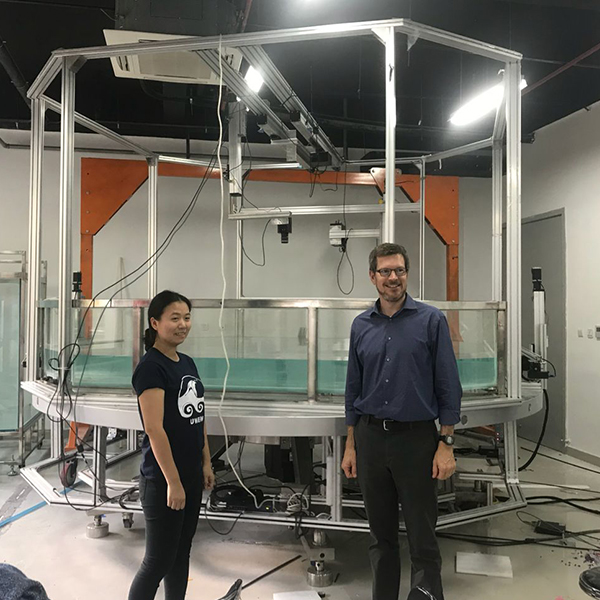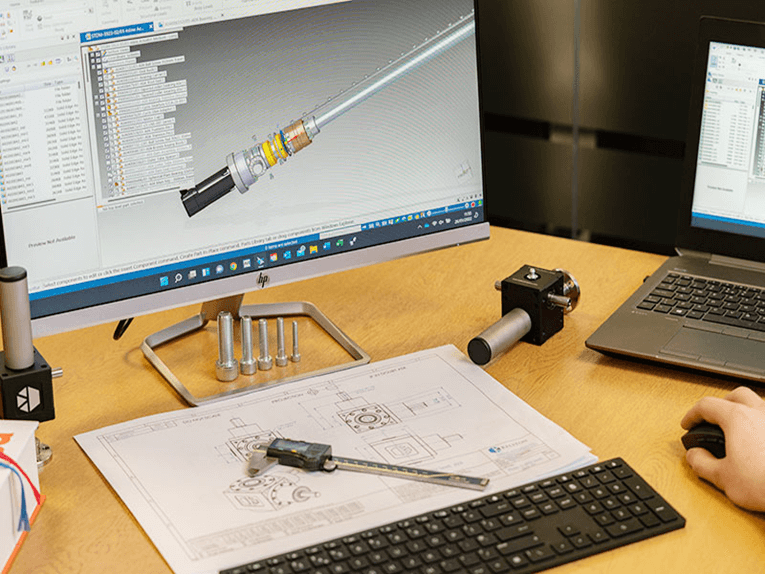How to choose the right linear actuator?
Linear actuators are an important element in automation and mechanical engineering and help with a variety of tasks, from simple to extremely complex ones. Picking the right one is very important, since linear actuators and linear slides can be driven in a wide variety of ways.
Lead screw-driven actuators—for high accuracy
If a lower speed, yet a high level of accuracy, is required, linear actuators with trapezoidal threads are usually a good option. The linear axes with lead screw drives are also great options for high axial thrust forces. Due to the critical speed limit for lead screws, the travel path (max. 1,500 mm/5 feet), the speed, and thus the speed of the lead screw, are severely limited. The recommended speed limit depends on the lead screw diameter.
With our design, accuracy and medium speeds can be combined due to the special thread pitch; however, a maximum travel distance of 1,000 mm must be observed.
When should I choose a lead screw-driven linear actuator?
For format adjustments
In extreme environments (heat, cold)
When corrosion resistance is required
When it needs to be low-noise
For shorter travels up to 1.5 meters or 5 feet
For low to medium speed with high accuracy
Belt-driven linear actuators—when things have to go fast
Belt drive linear actuators are particularly suitable for fast positioning and handling tasks. Long travels up to 3,000mm at high speeds are ideal requirements for this linear actuator.
When do I choose a belt-driven linear actuator?
When high speeds are required
For travels up to 3 meters/9.8 feet
If the structure should be particularly flat
If positioning accuracy may be > 0.1mm
If cost is the number one concern, we have the perfect series to save the cost while still improving the technology of your linear assembly at the same time.
Post time: Aug-16-2022








